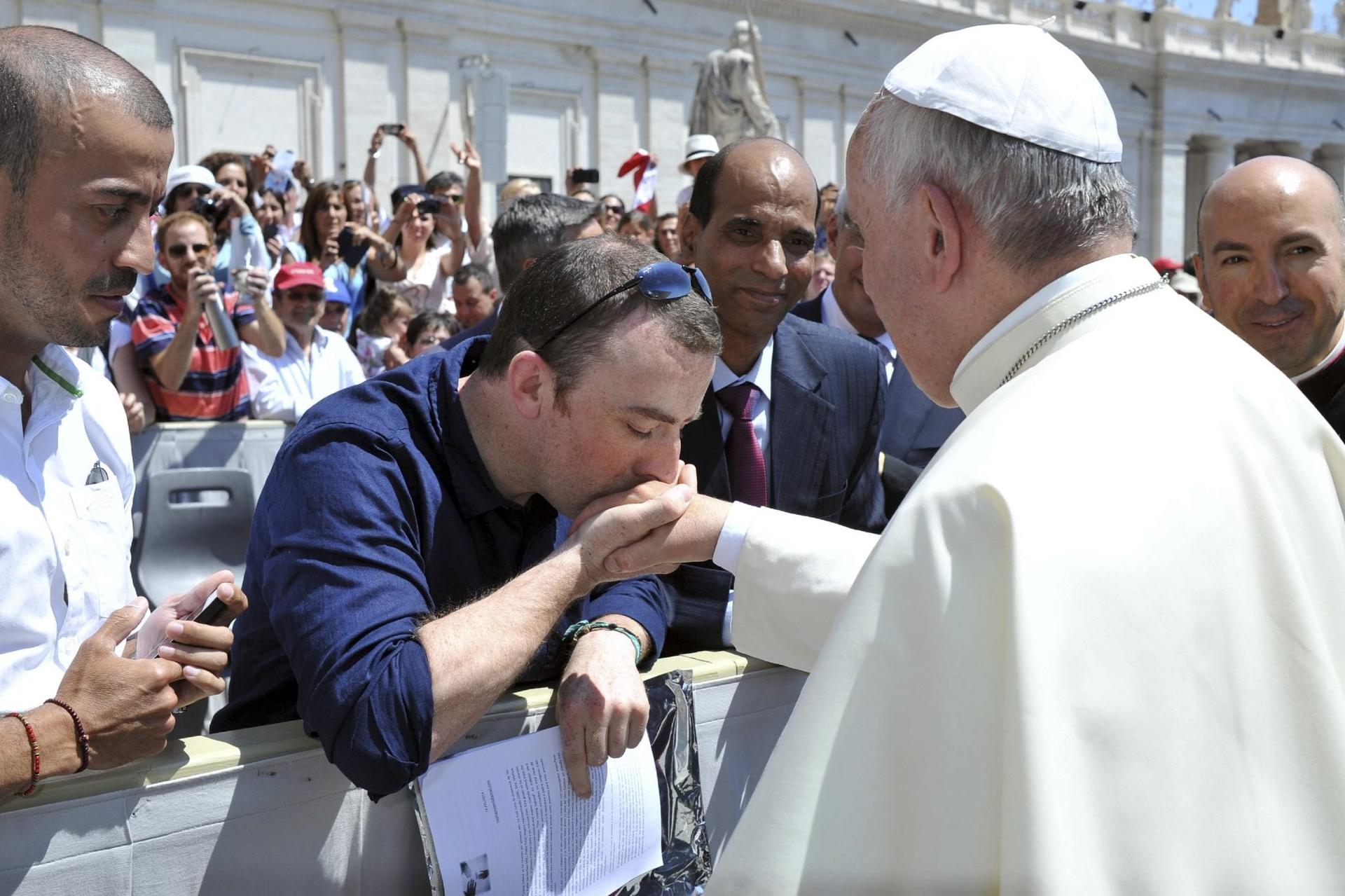ROME – Responding to recent revelations about internal policies dealing with priests who have children, the Vatican’s top official for clergy said Wednesday that with “very rare” exceptions leaving the priesthood to take up the duties of a parent is the right solution in such cases.
“Obviously, a child is always a gift from God, however he or she was generated,” said Italian Cardinal Beniamino Stella, prefect of the Vatican’s Congregation for Clergy.
“The loss of the clerical state occurs because parental responsibilities create a series of permanent obligations which, in the legislation of the Latin church, do not allow for the exercise of priestly ministry,” Stella said.
Stella’s comments came in an interview with veteran Italian journalist Andrea Tornielli, who since December has been serving as the Vatican’s new editorial director. The interview was released by the Vatican Press Office Wednesday afternoon Rome time.
In Tornielli’s preface, he notes that the theme of children of priests has become prominent since an Irish psychotherapist named Vincent Doyle, whose father was a priest, prompted a New York Times article in which Vatican spokesman Alessandro Gisotti confirmed the existence of “internal” policies for such cases.
In a recent interview with Crux, Doyle insisted that Gisotti had misrepresented those policies when he said they essentially require a man to leave the priesthood if he fathers a child.
“Let me say on the record that contrary to what was affirmed by Gisotti, there is nothing in that document that states a priest has to leave,” he told Crux. “I would never applaud that, it’s not there. It has no canonical foundation, it has no common-sense foundation or ethical foundation. It’s just simply not there.”
“A priest doesn’t have to be married to be a good father,” Doyle said. “There’s no contradiction between priesthood and paternity.”
RELATED: Priest’s child demands Vatican set record straight on ‘internal policies’
In the Feb. 27 interview, however, Stella appears to suggest that leaving the priesthood is the general expectation in such cases.
“Obviously, every case must be examined on its merits and its specificity,” he said, adding, “In reality, exceptions [to leaving the priesthood] are very rare.”
Stella offered two examples of what those rare exceptions might be:
- A priest’s newborn child is already part of a “consolidated” family, in which another parent has already assumed the father’s role.
- A priest who’s advanced in age and whose child is already at least 20-30 years old, and who now exercises his priesthood “with zeal and commitment … after having overcome his earlier affective fragility.”
“In these situations,” Stella said, “the dicastery [referring to the Congregation for Clergy] does not require bishops to invite priests to request a dispensation [from the clerical state].”
In general, Stella argued, the good of the child requires the priest to devote himself full-time to being a parent.
“The important thing is that the priest facing such a reality be capable of understanding his responsibilities with regard to the child,” he said. “The child’s welfare and care must be at the center of the attention of the Church, so that the offspring doesn’t lack not only what’s necessary to survive, but, above all, the affective and educational role of a father.”
Doyle told Crux Wednesday that regardless of Stella’s general suggestions that priests with children should leave, the critical sentence in the interview is that each case must be examined on its own merits.
“He’s empowering bishops on a local level,” Doyle said. “Everything else is superfluous.”
“I’m really grateful for that sentence,” Doyle said. “I think it’s the most important sentence in recent Catholic history.”
In terms of why the document hasn’t been released to the public, Stella said it’s “a technical text for the collaborators of the dicastery,” and that it’s routinely “presented and commented upon by the congregation to episcopal conferences and individual bishops who are dealing with the theme and ask how they should proceed.”
Stella said that the policy of facilitating exits from the clerical state for priests who have children dates back at least to the term of Brazilian Cardinal Claudio Hummes, who led the Congregation for Clergy from 2006 to 2010. According to Stella, Hummes asked Pope Benedict XVI to make it easier for priests under 40 to obtain dismissal from the clerical state, since Church law at the time required them to wait for their 40th birthday.
Today, Stella said, the Vatican does “everything possible” to help a priest with children to obtain a dispensation from his priestly obligations as quickly as possible, generally “a couple of months.”














